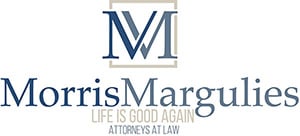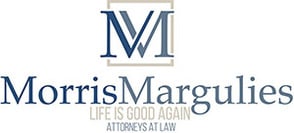
Homeowners now have another tool to avoid the foreclosure of their homes, thanks to rules recently enacted by the Consumer Financial Protection Bureau (CFPB) (www.consumerfinance.gov). Due to the miserable experience many distressed homeowners have had with their mortgage servicers, these new rules have been implemented to ensure that homeowners are able to apply for all of the foreclosure avoidance protections available to them.
Servicers Must Contact Borrowers: The law now requires that 36 days after a homeowner misses a payment or cannot pay the full amount, the servicer must make a good faith effort to establish contact by telephone or an in-person meeting. In addition, the servicer must reach out to the borrower every time a payment is missed. If the borrower becomes 45 days delinquent, then the servicer must provide written notice to the borrower encouraging him or her to contact the servicer regarding loss mitigation efforts. The borrower must also be given information about how to find a housing counselor who can provide helpful information.
Foreclosure Restrictions: A mortgage servicer may not send a first notice of foreclosure or file for foreclosure until the borrower is more than 120 days delinquent. This time period is designed to give borrowers time to learn about loss mitigation options, including mortgage assistance and loan modification. In addition, the servicer may not begin the foreclosure process while a borrower is still being evaluated for a loss mitigation plan, unless the borrower is not making the required payments under the loss mitigation plan.
Servicer’s Must Retain and Have Immediate Access to Your Information: It is a common complaint among borrowers that their mortgage servicer does not have the correct information about their loan or that they get a different story each time they call, depending on which person they speak to at the servicer. The CFPB’s rules now require servicers to assign personnel to help delinquent borrowers and to make sure that their employees give accurate information about loss mitigation options and be able to quickly locate the written information the borrower has submitted.
Timelines for Requesting Assistance: Generally speaking, it is best to request mortgage assistance sooner, rather than later. Borrowers have the most protections if a complete application for mortgage assistance is submitted within 120 days of the first missed payment. That is because the servicer cannot start the foreclosure process during those 120 days. However, if a borrower submits a complete application for loss mitigation 45 days or more before a scheduled foreclosure sale, then the receipt of the application must be acknowledged and the borrower must be told whether additional information is required to complete the application. If a borrower submits a complete application 90 days or more before a scheduled foreclosure sale, and the servicer offers the borrower a loss mitigation program, the servicer must give the borrower at least 14 days to accept or reject the loss mitigation option. The borrower also can appeal a denial of loss mitigation within 14 days. Even where a completed application is submitted 37 days or more before a foreclosure sale, the borrower must be evaluated for loss mitigation options, and a notice of the decision must be provided to the borrower.
Servicers Must Explain Its Decisions: To many borrowers, it is a mystery why they were denied a loan modification, when their neighbor across the street received a modification that allowed them to save their home. Now, servicers must give specific reasons for the denial of a loan modification. If the modification is denied due to an investor requirement, for example, the servicer must explain the requirement.
The attorneys at the law firm of Margulies & Associates, LLC have assisted thousands of clients through loan modification, foreclosure and bankruptcy. Please call us for a consultation today. Laura Margulies is a principal and Fred Nix is an associate in the law firm of Laura Margulies & Associates, LLC. We represent consumers in bankruptcy and litigation matters in Maryland and the District of Columbia. To learn more about our firm visit our web site at www.law-margulies.com.

